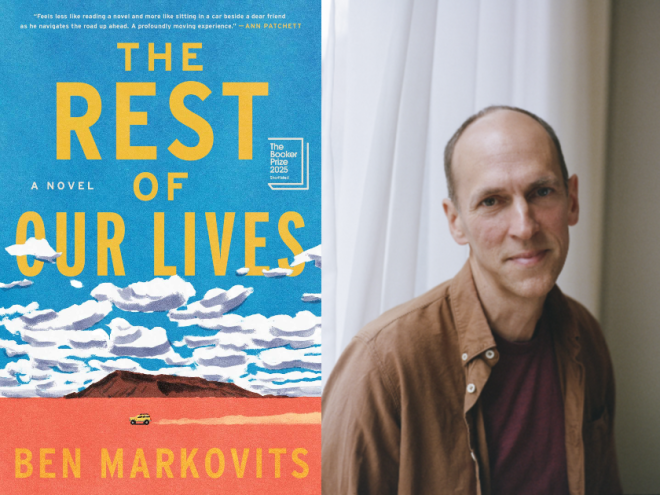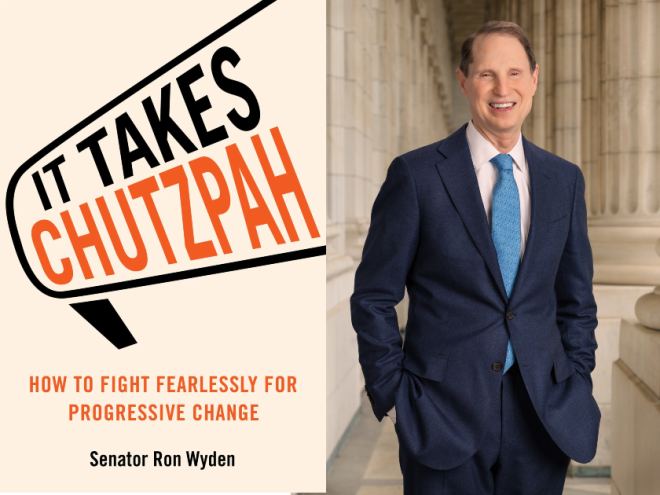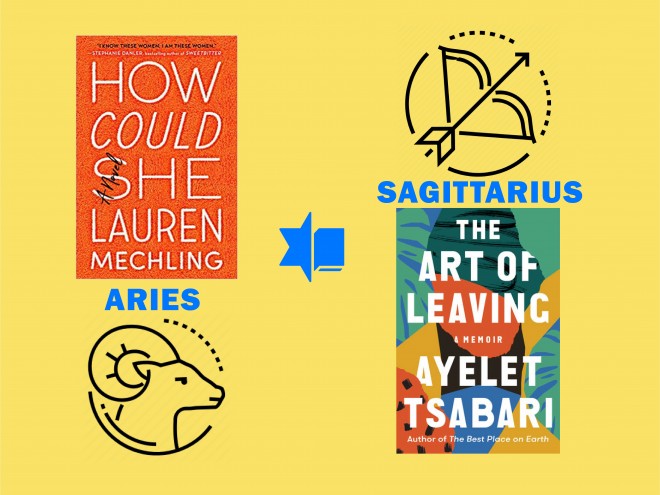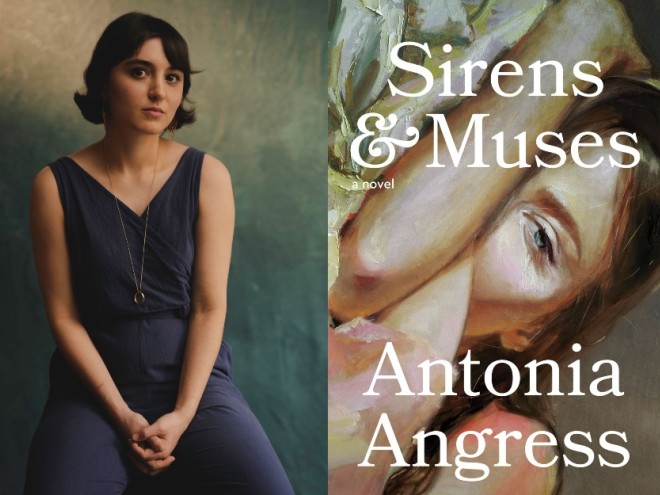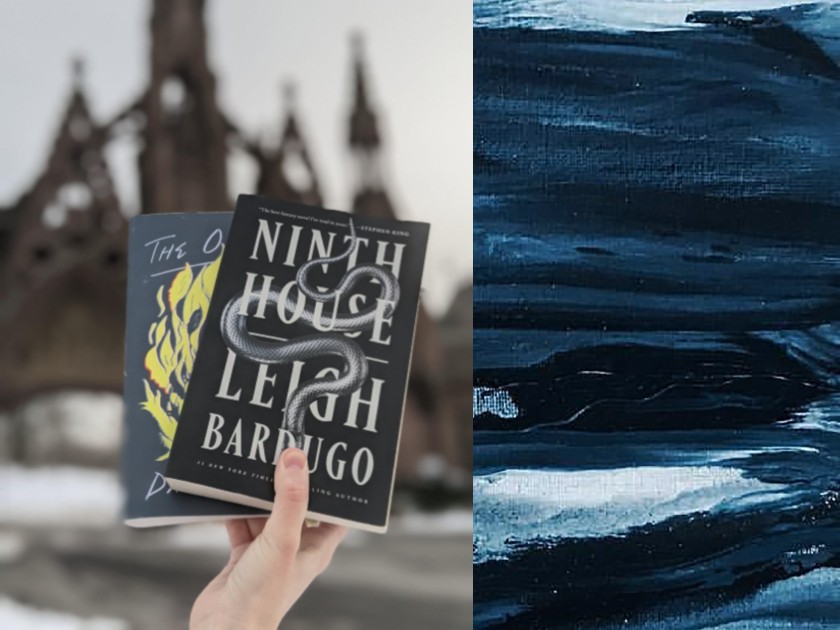
Both Leigh Bardugo’s Ninth House and David Hopen’s The Orchard deal with magic, friendship, and power imbalances at elite institutions. Jewish Book Council spoke with the two authors about integrating Judaism into the campus novel.
Jewish Book Council: To start off, could you tell us a bit about the inspiration for your books?
Leigh Bardugo: Ninth House began with my first glimpse of the Book and Snake tomb, a massive mausoleum covered in wrought iron snakes directly across the street from the gates to the Grove Street Cemetery in New Haven. Yale’s supposedly secret societies create bizarre, wonderful facades for their meeting places that invite all kinds of speculation. But it would be years before I understood the real shape of the story I wanted to tell and how it would explore magic and institutional power.
David Hopen: I began The Orchard as a high school senior, eager to make sense of the world I inhabited. Growing up, I studied in yeshivas that valued Torah Umadda, the notion that culture and Judaism heighten each other. Going off to Yale and then earning a master’s at Oxford, I was exposed to rich universes of literature and philosophy. My novel synchronizes these worlds, depicting what it is to balance ancient tradition with contemporary youth, what it is to dance in multiple spheres and render each one deeper.
JBC: Leigh, location plays such a pivotal role in how and why events unfold in your novel. You portray New Haven as a place imbued with magic, where Grays (ghosts) and the supernatural are a bit closer than elsewhere in the world. Can you discuss your use of the actual Yale Houses in Ninth House, and the idea of rewriting history with magic? How did your own experiences at Yale inform your novel?
LB: When I was first talking about this book with my editor, I made it clear that I didn’t want to write it if it couldn’t be set at Yale, not some cheekily named stand-in. I wanted to use the real names of the societies. I wanted to point to those very real places on the map. Magic is just another kind of power in the world of Ninth House. It’s a commodity, and for it to operate effectively and convincingly, I needed to draw direct lines to the way real power works in our world, whether it’s the ability to successfully predict the stock market or the charisma of a politician working the room.
JBC: On a similar note, even though the novel has many magical aspects, the characters are motivated by realistic issues. The wealth and prestige of Yale contrast with the economic tumult of the town itself. The sharp divide between those who attend the institution versus those who live in the area is similar to the social dynamic Alex has encountered in her hometown of Los Angeles. How did you go about blending fantasy and reality in such a striking way?
LB: It’s embarrassing to admit this, but I knew very little about New Haven despite having spent four years there as an undergraduate. The campus is built to keep the city out, and it works. But when I went back to Yale to dig into my research for the novel, I fell in love with New Haven — its culture, its history, its strangeness. That’s part of why I wanted to blur the line between fantasy and reality. It’s a joy when people say that on their way to New York, they got off the train at New Haven, had lunch, and followed the map in the book to trace Alex’s footsteps.
JBC: Turning to place in your novel, David: Ari grows up in a humble ulta-Orthodox community in Brooklyn and experiences something like culture shock when his family moves to a wealthy Florida suburb and he begins attending a preppy Modern Orthodox school there. How did you go about creating these two different worlds?
DH: Modern Orthodox Judaism operates as a fascinating — and beautiful — subculture of complexities. It’s a way of life I believed had not been depicted in literature. I was intrigued by the idea of examining variations of this lifestyle, albeit in a sometimes exaggerated form, because it’s a lifestyle that equips communities with deeply meaningful foundations on which to construct lives still very much attuned to the contemporary American landscape. Equally relevant, however, was my sense that these religious backdrops would allow me to catapult characters and readers into the moral territory to which I was drawn.
JBC: Many books about students at elite schools or colleges are about non-Jewish characters (such as The Secret History, to which your novel has been compared). Or if they do feature a Jewish character, it’s often to highlight the struggles of that character in an otherwise non-Jewish world. But your book is different. Ari is out of place not for being Jewish, but for the type of Jew he is. How do you feel your book is in conversation with other campus novels?
DH: As a child, as a young adult, I read relentlessly. And at the age when I began to write The Orchard, I was particularly engulfed by works that took fundamental questions of morality and beauty seriously. Oftentimes, these works fit within the campus novel mold, in part because educational institutions provide a unique space for self-contained mythologies. This was true of some of my first literary heroes — take Fitzgerald, for instance, or Donna Tartt — and it remains true today, in works by writers like Zadie Smith or Sally Rooney. That The Orchard emerges from this genus is not entirely coincidental, given that the novel aims to capture a certain transformational period: when ambitious youth bleeds into adulthood, when things have a habit of assuming outsized grandeur, when thinkers find themselves solidifying what will enliven and haunt them for decades to come. It’s thrilling — and humbling — to have anyone conceive of The Orchard in dialogue with what are, in my mind, canonical texts like The Secret History. What an honor if my book plays some small role within the meta-genre, pushing the conversation toward questions of faith, modern holiness, and yearning.
JBC: Leigh, Judaism is integrated quietly but powerfully into the plot of Ninth House through Alex’s memories of her grandmother’s Ladino phrases and songs. Can you speak a bit about the role of Ladino in the story and how you see Alex’s Jewish identity working in the novel?
LB: I wanted to isolate Alex as much as possible, stack the odds against her. And part of that isolation is cultural. I grew up in a house where no one was religious, no one went to temple. There were no prayers said for Rosh Hashanah or Yom Kippur. We got together, we ate, we argued. But when my grandparents died, even that tradition disappeared. In the book, I talk about Alex having all of her threads cut. She has nothing to tie her to the strength that culture and religion can offer, and that leaves her vulnerable. In singing Ladino, she’s connecting to the dead and to a source of strength — a history she knows little about but that is there for her when she’s most desperate for help.
JBC: David, I’m also intrigued by the clashes over religious observance in your novel. At school, Ari is made fun of for his religious observance; at home, his parents disagree about how secular their lifestyle should be. For Ari, becoming less observant is tied up with a general moral decline, but for his mother, embracing the secular world seems empowering. Could you talk about these different trajectories?
DH: This is a question that persists throughout Ari’s experiences: what tethers the moral and the good? I was interested in examining the impulse to associate religious observance with virtue, and the degree to which these variables converge or fracture in varied settings. At the root of that familiar impulse might lie an aspirational quality — the belief that principled living correlates with character. On the other end of the novel’s spectrum stand characters who might find that independence of thought outweighs diligent adherence to convictions prescribed by tradition. Or, perhaps, that staid practice contributes little to the moral marketplace if divorced from kindness and decency. And yet, as I think Ari discovers, these conversations have a way of reducing to an exercise common to any community, religious or secular: how do people ascribe value? In that sense, the characters and communities to which Ari is exposed might all be said to arrive at similar endgames: uncovering enriched ways of going about the world.
JBC: The plot of The Orchard is grounded in a myth from the Gemara. How did you come across the myth, and what is its significance to you? How did you go about reworking it as a novel set in the present day?
DH: To be educated within yeshiva day schools is to, almost by osmosis, absorb a spectacular collection of Talmudic and biblical tales. What results is an interesting phenomenon: a capacity to draw from this reservoir without always fully realizing the power of such stories. Returning to the myth of the four rabbis provided an ideal way to launch this storyline, given that the myth, in my mind, poses questions that are integral to our formation of religious — and civic — identities. Sometimes, the most effective way to repossess something to which you have such close proximity is to recast the object in unfamiliar light. That was what I set out to do with this myth. I remember sitting in my childhood bedroom, at seventeen or eighteen, and jotting down prehistoric notes. And as I sat sketching characters and clarifying my early vision for the novel, I reimagined the myth and realized it was the perfect entryway into larger topics I hoped to explore.
JBC: On a related note, I’m fascinated by the blend of fantasy and realism in your book. Magic is present throughout Ninth House, but your characters don’t encounter it until the very end of The Orchard. Was this decision also based on the original myth from the Gemara?
DH: More than anything, this decision was pragmatic. Whatever happens within my version of what one might call an “orchard” — I will reserve interpretations for my readers — marks a culmination of a specific progression. This progression unfolds over the course of several months, catalyzed by an insistence on making sense of certain pillars of belief. This placement just reflects the natural product of these months of experimentations.
JBC: Both of youalso make several references to other works of literature in your novels. David, you focus on tragedies in particular — there are references to everything from the Greek tragedies to Hamlet to The Great Gatsby. How did these works inform The Orchard? Leigh, you include references to poetry, Ladino ballads, and Latin “death words” — used for protection against the supernatural — as well as including excerpts from fictional works like Lethe Days Diary as chapter headings. How did other works inform Ninth House, and what was it like to create your own fictional canon?
LB: Magical language doesn’t just belong to high culture in Ninth House. A ghost can be frightened away by the right poem in Latin or by a jingle from a local mortuary. Language is powerful magic in our world, so why not make that magic literal? I think we all know that language can be weaponized and I wanted to make that literal, too. The Life of Lethe and the Lethe Days Diaries show the responsible, academic side of Lethe in contrast to what happens when a bunch of undergrads are given nearly unfettered access to arcane magic. Of course things are going to get reckless and ridiculous.
Language is powerful magic in our world, so why not make that magic literal? I think we all know that language can be weaponized and I wanted to make that literal, too.
DH: One result of producing my novel while pursuing academic work was discovering a confluence of thought in both spheres of my writing. Working on studies in literature and in moral and legal theory necessarily informed my book, largely because such studies informed my thinking. Within the world of The Orchard, too, literature offers a means of escaping and of living. A great deal of Ari’s intellectual development occurs on his own, before moving to Florida, when he loses himself in books not merely to disappear, but also, crucially, to reemerge transformed into someone who had vicariously accumulated otherwise inaccessible experiences. I wanted that hunger to permeate the atmosphere I was building, and I wanted that sense of urgency, that literary feeling of awe and scale, not only to animate characters, but also to present a test by which to measure the wonder — and power — of their pursuits.
JBC: In both of your books, drugs are a catalyst for supernatural and potentially very dangerous experiences. Could you talk more about their role in your respective stories? What is their relationship to magic?
We’re intrigued by how differently your characters react to the idea of being drugged, too. Could you talk a bit about that? In Ninth House, Alex is deeply disturbed when she learns that her friend was drugged. In The Orchard, however, Ari’s friends have a more ambiguous reaction when they find out that one boy in their group, Evan, slips a Xanax in Ari’s drink and later laces all of their cupcakes with acid.
DH: These vices function as plot devices. Ultimately, they furnish methods by which characters experience — or, at least, attempt to experience — other realms, and in some sense, too, they provide ways to track suffering and change. Flagrant ethical — and legal — violations signal dangerous behavior and moral dysfunction.
LB: I think there are a few different questions here because not all drugs are created equal and we’re also dealing with issues of consent. So are we talking about magical psilocybin that allows you to move through portals to other worlds? Or the drops that Alex takes to make it through class when she’s exhausted, which aren’t radically different from caffeine? Darlington is willing to take Hiram’s Elixir to see through the Veil; he knows the risks, and he’s willing to take them because he wants to see magic so badly. Honestly, I get it. I’d make the same choice, healthy or not.
But then there’s what happens to Mercy. The trauma she experiences is less about the drug than what that drug enables. The problem is not drugs or magic. It’s that drugs and magic exist alongside predators who are frequently protected from consequences.
JBC: Perhaps somewhat like Ari, Alex Stern feels like an impostor throughout the novel. There is “Yale Alex” and then there’s regular Alex, who is Jewish and multiracial, who didn’t finish high school, who shops in the sale section, and who can see the supernatural. Alex is spurred to action by being marginalized as well as by seeing other marginalized women suffer. Could you speak a bit about this?
LB: When I went to college, I felt like everyone was speaking a language I didn’t know. I was a smart kid. I’d gone to a good prep school. And yet, I remember getting my first freshman English paper back and my professor had torn it to shreds. I had to relearn how to write and how to talk, and I just remember feeling incredibly ashamed. Like I was supposed to know without ever having been taught. It was like that socially, too. I didn’t quite understand how to behave, what was funny or interesting or acceptable. I dated a guy who had professors for parents and he knew so much about how to work the system — how to apply for grants, how to make connections with lecturers. I felt like I was playing catch-up for a long time, and so I wanted readers to have a sense of that through Alex.
Alex is fundamentally a survivor, and she knows what this opportunity could mean for her. She only has one chance and she’s surrounded by people who burn through second chances. So her journey is very much about embracing the parts of herself she thought she had to jettison, and questioning whether she even wants a seat at this particular table.
JBC: Many of the inequalities in Ari’s new community in The Orchard also stem from wealth, and they also lead to (at least perceived) miscarriages of justice. For example, the principal overlooks Evan’s father’s poor treatment of his mother because of the donations Evan’s father makes to the school. David, is the myth (and real experience) of the orchard an antidote for this — a case, as one of the characters says, of “divine justice”?
DH: Divine justice, as Ari and his friends debate, resists neat definition. Whether some corrective force exists — and how best to conceptualize its nature? — is a question that consumes these characters. This ambiguity, especially within the “orchard,” leaves room for the characters to fashion their own theories. What is the best way to reckon with duty and privilege? What comfort does knowledge provide, and how can it be employed to enhance the lives of those you love and those in need? Ultimately, as Evan makes vivid throughout the novel, any attempt at disentangling these mysteries and giving proper form to what we want to call “justice” necessitates quieting a sobering thought: do we really know what we deserve?
JBC: Throughout Ninth House, there is also an exploration of justice on both macro and micro levels. Leigh, the role of Lethe is to ensure that the magic of the Houses is used fairly in regards to the regular world, but the reality of this regulatory function is vastly different. Alex debates whether it is okay to take things into her own hands and when a line must be drawn. Your novel seems to ask if there is justice at elite institutions — in particular, do privileged students experience fair repercussions for their misdemeanors?
LB: I mean, people ask that every day. The language around assault and harassment and racism has changed since I was an undergrad, but the issues haven’t. I thought it would be fun to write a book about dark magic in the Ivy League, and there’s plenty of humor and horror in the book, plenty of arcane texts and beautiful libraries and crisp fall days. But you can’t write about an institution like Yale without addressing privilege and gender and race. It’s not a question of being political. It’s the obligation of being an honest storyteller. And I’d be lying if I said this book wasn’t my own reckoning with a past that isn’t always comfortable to look at closely. So yes, justice plays a major role, and frequently crosses the line directly into revenge.
JBC: Could you both tell us how death and loss propel the characters in your respective novels?
LB: I always think of grief as a sucker punch. You think you’ve put it in the past, and then it comes at you out of nowhere. It’s not beautiful or graceful. It’s sobbing in a parking lot. It’s making terrible choices because you don’t want to look sorrow in the eye. Hellie’s death is a big part of what drives Alex to refuse to accept easy answers when Tara is killed. But she’s not just dealing with loss — she’s also trying to untangle her own complicity in that loss and to avoid repeating it.
I always think of grief as a sucker punch. You think you’ve put it in the past, and then it comes at you out of nowhere. It’s not beautiful or graceful. It’s sobbing in a parking lot.
DH: Death, in The Orchard, occasions self-redefinition. It gives wounds that are never overcome. It lends urgency while also making things fall still. And it tears down whatever separates normalcy from the life that comes next. Early in the novel, on the first day of school, Ari and Sophia offer conflicting visions of tragedy. Part of the experience of reading this book is deciding which definition, if either, rings true.
JBC: David, you also do a great job of capturing how someone, especially a teenager like Ari, can be drawn to people who are self-destructive, self-absorbed (like his girlfriend, Sophia), or even openly antagonistic (like Evan). Could you tell us about how you set up the dynamics of Ari’s friend group? Why is it important that the boys in particular share the novel’s spiritual experience, and not, for example, Sophia?
DH: The group certainly exhibits alarming tendencies. Yet those characters also grapple with growth, loss, longing. And for much of the novel, the friends experience an authentic sense of community. We see the real joys of friendship, the thrill of intellectual companionship, the way the relationships of youth prove distinctively foundational. That only this cohort embarks on that specific journey aligns with the mechanics of plot: these are the seekers who have been building steadily toward this moment throughout the story. But it’s also true that a character of Sophia’s caliber might have a greater spiritual dimension than those who undergo this experience. Perhaps it’s fair to say that Sophia seeks moral clarity through other pursuits.
JBC: Leigh, appearances play an important role in how people are perceived at Yale and in New Haven. Alex is intent on hiding her tattoos, and is ultimately able to use magic to do so. Meanwhile, Darlington succeeds in creating a persona of gentility and wealth despite not having much money to his name, and Alex never questions it. Can you speak a bit about the illusion of appearances, and how magic plays into it?
LB: We all dabble in this, don’t we? The right clothes, the right car, a perfectly staged living room. Tell me there isn’t magic — possibly dangerous magic — in an Instagram filter? It made perfect sense to me that my characters should be engaged in this kind manipulation. Think about charisma — it can’t be quantified or even accurately described, but it is very real and we’ve all experienced it. Think about the mystery of why something goes viral or how powerful we feel in a well-cut suit. What if that could be bottled? It’s just as powerful as death magic or fortune telling. Maybe more so. And equally magical is the process of moving beyond illusion, of getting to know someone deeply. It’s the surprise of the lady sawn in half, then restored. It’s the grandest reveal.
JBC: What are you both working on next?
DH: At the moment: my final examinations for my first semester of law school. More generally, though, I’m at work on a new novel and some exciting future opportunities.
LB: An adaptation of Shadow and Bone and my other Grishaverse novels will be coming to Netflix soon. In March, I’ll be releasing Rule of Wolves, the sequel to King of Scars. And hopefully the sequel to Ninth House will be in readers’ hands in 2022.
Simona is the Jewish Book Council’s manager of digital content strategy. She graduated from Sarah Lawrence College with a concentration in English and History and studied abroad in India and England. Prior to the JBC she worked at Oxford University Press. Her writing has been featured in Lilith, The Normal School, Digging through the Fat, and other publications. She holds an MFA in fiction from The New School.
Becca Kantor is the editorial director of Jewish Book Council and its annual print literary journal, Paper Brigade. She received a BA in English from the University of Pennsylvania and an MA in creative writing from the University of East Anglia. Becca was awarded a Fulbright fellowship to spend a year in Estonia writing and studying the country’s Jewish history. She lives in Brooklyn.
